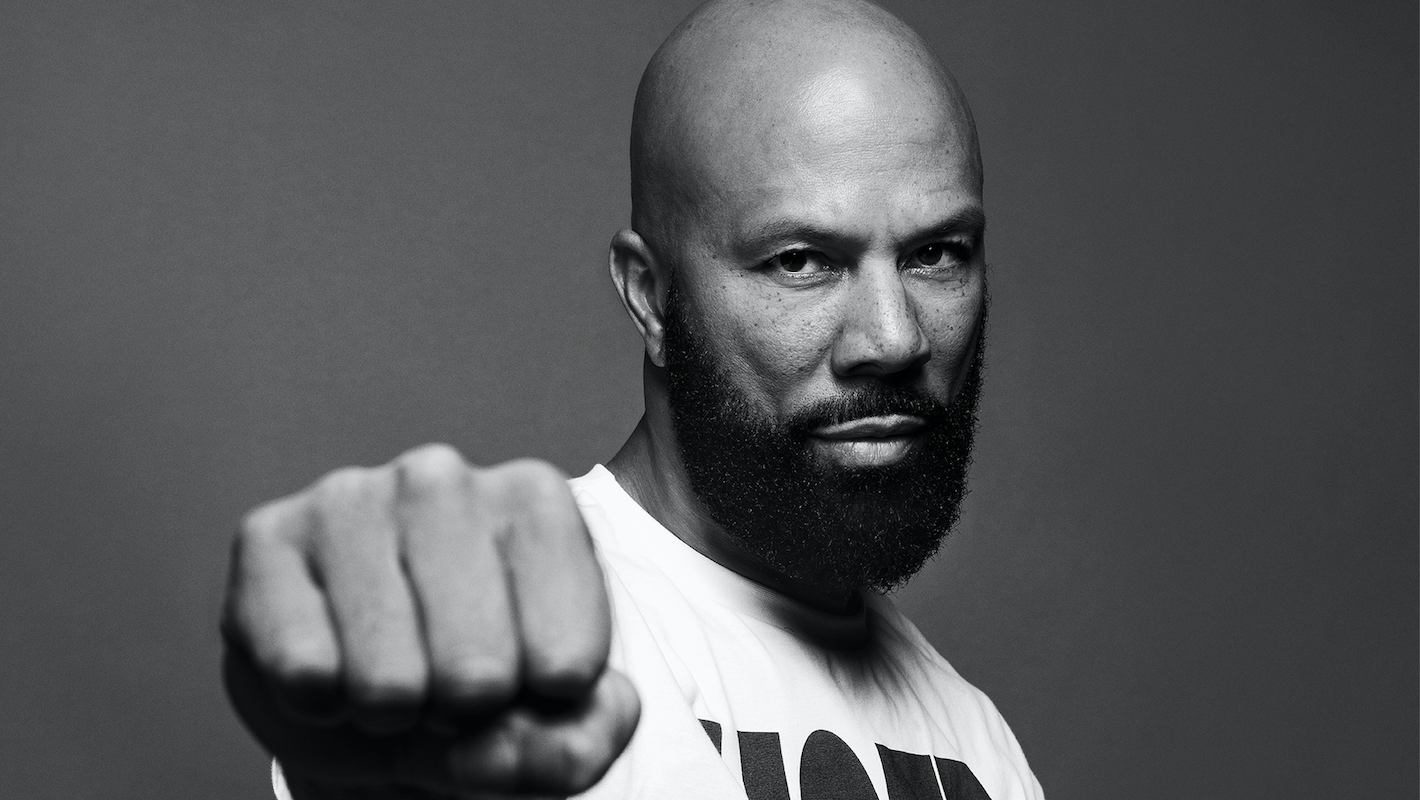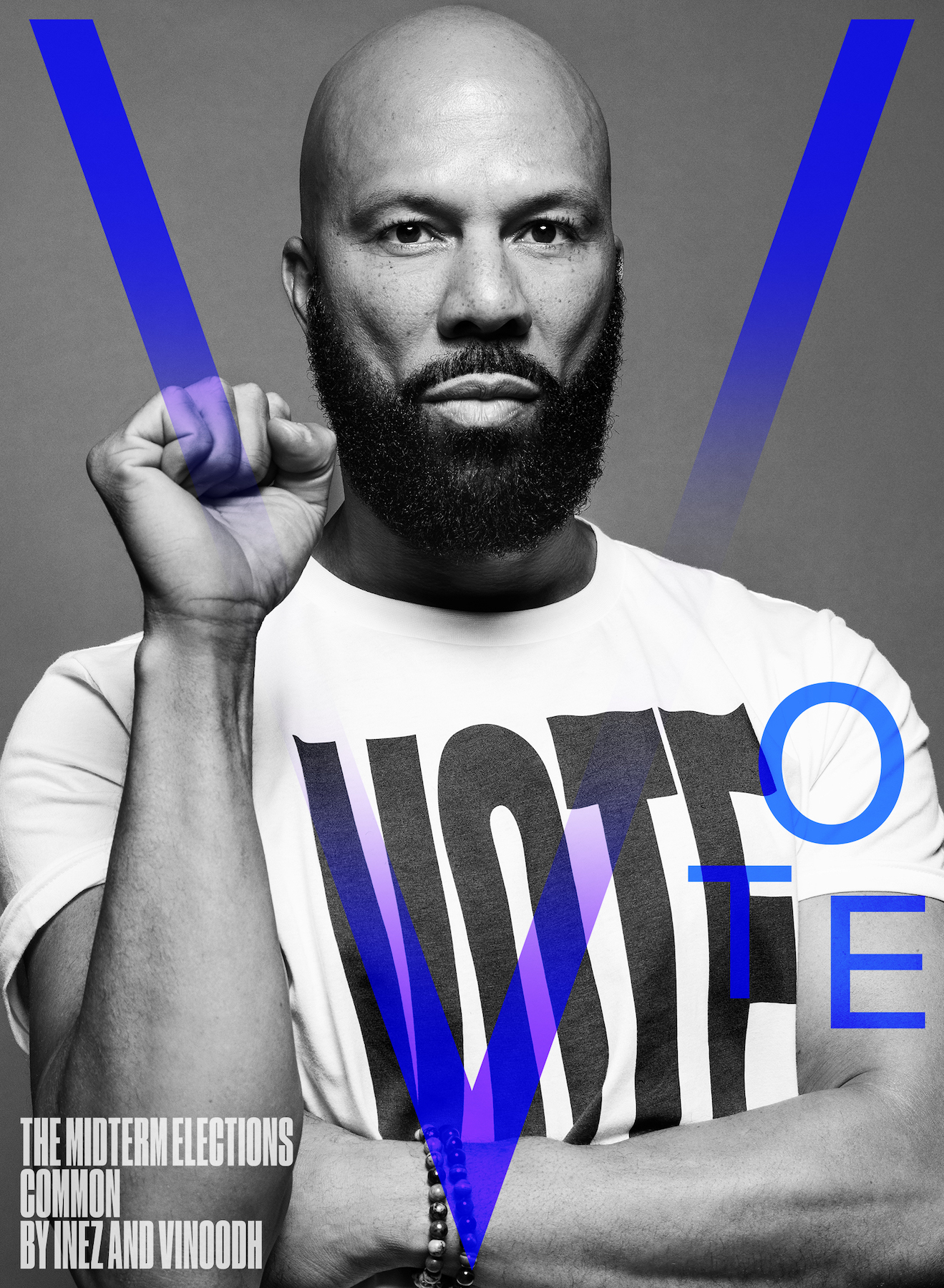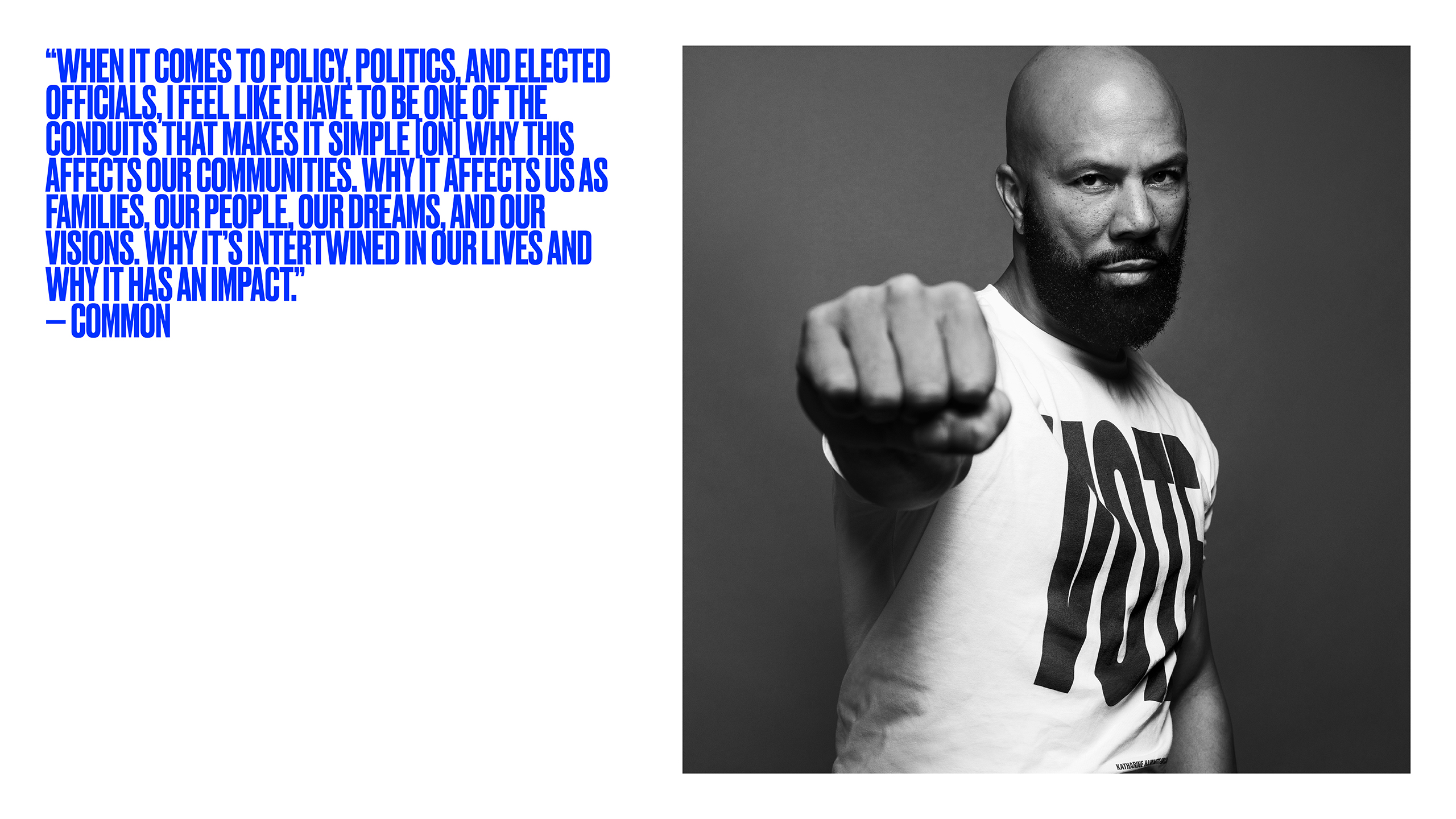Midterm Elections 2022: Common
For the Grammy-winning rapper, politics and voting are ways of expressing love

Rap and hip-hop have always been political. The genre itself is built out of a “fight the power” mentality, using music and art as a means to kick back at oppressive systems. You can see it in ‘90s rap, with songs like “Sound of da Police” by KRS-One, but also in the rap of today. It’s artists like Common who carry this baton forward, using their music to demand social action. You’ve almost certainly heard a Common song, whether it be his 2005 mega-hit “GO!” or his Oscar-winning movement anthem “Glory,” co-written with John Legend. All of this music, from his early rap career to his present stardom, is a call for progress.

That sense of political urgency isn’t just found within Common’s music; it’s found within his actions, too. Just a few years back, Common held rallies in Georgia, going door-to-door and asking residents to register to vote in the state’s runoff. With an ever-present commitment to voting activism, Common sat down with V to talk about democracy, political enthusiasm, and how we start a mass movement.
See the full discussion with Common and climate and voting activist Saad Amer, below.
Saad Amer: You were in Georgia in 2021, knocking on doors and having rallies. Why is doing that work so important to you?
Common: When it comes to policy, politics, and elected officials, I feel like I have to be one of the conduits that makes it simple [on] why this affects our communities. Why it affects us as families, our people, our dreams, and our visions. Why it’s intertwined in our lives and why it has an impact. I was one of those people who felt like politics don’t matter, and these politicians don’t represent me. I didn’t feel a part of America’s choices when it came to true freedom and government. So being that I’ve evolved and grown and seen what it means to [people’s] lives, I’m like, ‘Oh, I gotta make this easy for the person who’s just not even thinking about voting.’
SA: How did you make that transition yourself from being one of those people who didn’t care initially?
C: It was gradual. I started to become more aware because I was getting introduced to people in political places that were district attorneys and state attorneys. And I saw how much they were for the people, and came from our communities. I was like, ‘I just gotta educate myself more on what this is’. And obviously, it started to crystallize when I realized that some of the injustices that we have seen going on–with police killing Black and Brown people often–those things can be combated in policy change. That’s one of the ways that we can do it. Once that structure is affecting all your people and all the people in this country and your children, then you’re like, ‘Oh, I don’t care how much they’re pushing me out. I have to come in, and knock down the door. I have to go fight, strategize, plan, and pray to be a part of this and to do the work.’

SA: You worked on the soundtrack for Selma, and you did a song with John Legend. In that song, I wanted to hear your thoughts on this one part that was speaking to me, given the moment that we’re in. You say, “Somewhere in the dream, we had an epiphany. Now we right the wrongs in history. No one can win the war individually. It takes the wisdom of the elders and young people’s energy.”
C: I feel like we saw that more than ever in 2020. Movements happen with young people, but we still need the wisdom of the ancients, the elders, to have certain guidelines and methods. Not just methods, but when I say guidelines, I mean morals about it and ethics and spirit. That experience added to the young movement and thoughts, creativity, energy, and the passion and fire that young people bring to a movement is to me one of the equations that equate to change. To me, it is important to be able to listen. Listening is so important. And, when it comes to change and movement, to be able to listen and then intelligently process and apply these things.
SA: What do you say to that person who feels like nothing has changed yet?
C: Well, I mean, if you say nothing has changed, there was a point in time and this wasn’t too long ago that we couldn’t even share the same bathrooms with other people. There’s symbolism and energy in having kids grow up seeing Obama as the president. That’s political reality. The fact that we had a Black president, the first family is a Black family–Do you understand what that does for people of all different nationalities? [It’s] like ‘man, I actually can be the highest’. It takes limitations off of your thoughts.
SA: We’re grateful for your recent albums–I mean, it’s movement music. I feel like you went all in crafting these pieces. Why did you feel the need to do that right now?
C: We got some things here in our country that we can do better, and do better by each other. Education is one. Healthcare’s another. Just a simple act of love and taking care of each other. I feel like action and politics are other ways of me expressing my love. The way that we can express our love towards each other is by taking action and being active.
Midterm Election Day is November 8th!
If you’d like to vote in person for this election, make sure you’re registered and plan ahead so you have the time to go and vote!
Have you reminded your friends? Bring them with you!
Find your polling place, see what’s on your ballot, check your registration, and more at Vote.org!
[The t-shirts worn in this latest series of V IS FOR VOTE have been designed by Katharine Hamnett. A portion of sales from each shirt sold helps directly benefit the United Nations Development Programme (UNDP). For more information, visit WeAreTheFutureSDGS.com.]
Discover More
